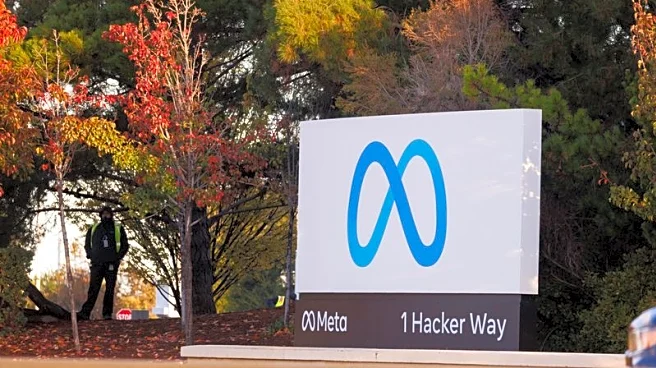What's Happening?
Oobli, a company based in Davis, California, has received its third 'no questions' letter from the U.S. Food & Drug Administration (FDA) for its sweet protein, brazzein-54. This designation means the protein is generally recognized as safe (GRAS) for use in food products. Brazzein-54 is derived from the oubli fruit, which is native to West Africa and other equatorial regions. The company has previously received similar approvals for its other sweet proteins, brazzein-53 and monellin. These proteins offer a sugar-like sweetness without impacting blood sugar, insulin levels, or the gut microbiome. Oobli's sweet proteins can replace up to 70% of sugar in various products, including sodas, teas, and baked goods. The company has formed partnerships with several companies, including Grupo Bimbo and Ingredion, to incorporate these proteins into their products.
Why It's Important?
The FDA's 'no questions' letter is significant as it validates the safety of Oobli's sweet proteins, potentially transforming the food and beverage industry by providing a healthier alternative to traditional sugar. This development is crucial for consumers seeking to reduce sugar intake without sacrificing taste. The approval could lead to broader adoption of sweet proteins in the market, benefiting companies looking to offer healthier products. It also aligns with growing consumer demand for natural and low-calorie sweeteners, which could drive innovation and competition in the sweetener market. The partnerships with major companies like Grupo Bimbo and Ingredion highlight the commercial potential and scalability of Oobli's sweet proteins.
What's Next?
Oobli is likely to continue expanding its partnerships and production capabilities to meet the increasing demand for sugar alternatives. The company may explore new markets and applications for its sweet proteins, potentially leading to further collaborations with food and beverage manufacturers. As more products incorporate these proteins, consumer awareness and acceptance are expected to grow, potentially influencing dietary habits and public health positively. Regulatory developments and consumer feedback will be critical in shaping the future trajectory of Oobli's sweet proteins in the market.
Beyond the Headlines
The approval of Oobli's sweet proteins could have broader implications for the food industry, particularly in addressing public health concerns related to sugar consumption. As obesity and diabetes rates continue to rise, the availability of safe and effective sugar substitutes could play a role in mitigating these health issues. Additionally, the use of plant-derived proteins aligns with sustainability trends, as they often require fewer resources to produce compared to traditional sweeteners. This development may also encourage further research and innovation in the field of alternative sweeteners, potentially leading to new discoveries and applications.










